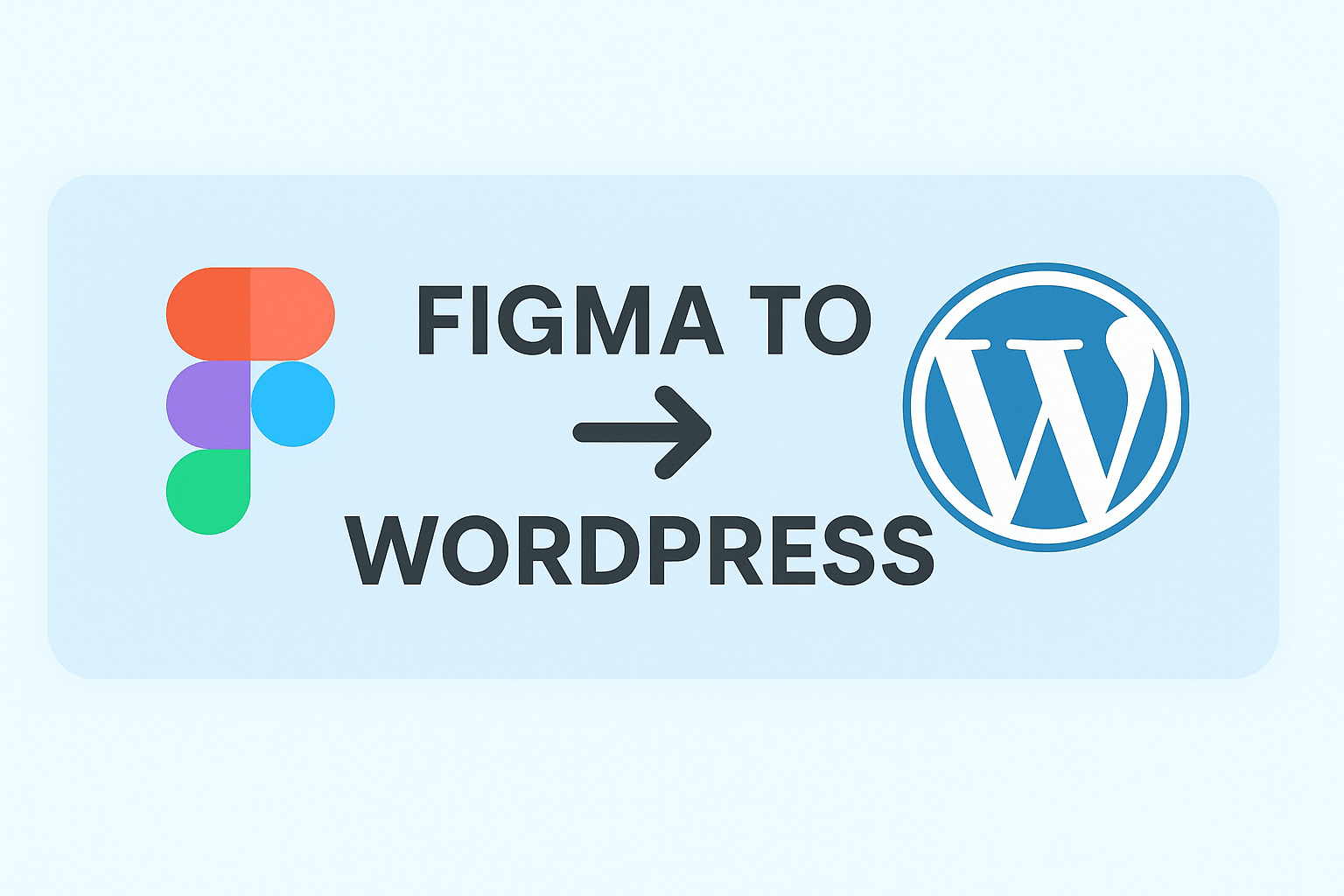
In today’s web design world, Figma to WordPress conversion is one of the most in-demand skills. Figma allows you to design beautiful, interactive layouts — but to make those designs functional and live on the web, you need WordPress.
In this guide, we’ll walk you through everything: what Figma to WordPress conversion means, why it’s important, and how you can do it step-by-step — even if you’re a beginner.
What is Figma to WordPress Conversion?
Figma to WordPress conversion is the process of transforming a static Figma design into a fully functional WordPress website.
You start by creating your design in Figma, export the necessary assets (images, icons, colors, etc.), and then develop a WordPress theme or use a page builder like Elementor, Bricks, or Divi to bring it to life.
Why Convert Figma to WordPress?
✅ Pixel-perfect website: Your live website looks exactly like your Figma design.
✅ Fast development: Figma’s structure helps you build layouts faster.
✅ Responsive design: Easily adjust layouts for mobile and tablet.
✅ SEO-friendly: WordPress allows meta tags, schema, and plugins for better ranking.
✅ Client control: Clients can manage their site easily with WordPress CMS.
Step-by-Step Process: Figma to WordPress Conversion
Step 1: Analyze the Figma Design
Start by understanding your Figma layout. Note the typography, color palette, spacing, and responsiveness.
👉 Export images in the correct format (WebP, PNG, or SVG).
👉 Collect all font styles used.
Step 2: Prepare Your WordPress Setup
- Install WordPress on localhost or hosting.
- Choose a base theme like Hello Elementor, Astra, or GeneratePress for fast performance.
- Install your preferred page builder plugin (optional).
Step 3: Export Assets from Figma
In Figma:
- Select the elements → Click Export.
- Export icons in SVG format and images in WebP for SEO optimization.
- Download your logo, background, and UI components.
Step 4: Build the Layout in WordPress
You have two main methods:
Option 1: Use a Page Builder (Easy Way)
Use Elementor or Bricks Builder to visually create your Figma layout:
- Set global fonts and colors.
- Add sections for headers, hero banners, services, etc.
- Insert images and adjust padding/margins as in Figma.
Option 2: Custom Code (Advanced Way)
Develop a custom theme:
- Create
header.php,footer.php, andindex.php. - Write clean HTML, CSS, and JavaScript.
- Add WordPress functions like
wp_head()andwp_footer().
Step 5: Make the Site Responsive
Use Figma’s responsive design guides to adjust:
@mediaqueries for mobile and tablet.- Resize images and optimize typography for smaller screens.
Step 6: Optimize for SEO
Your WordPress site must be SEO-friendly:
- Use an SEO plugin like Rank Math or Yoast SEO.
- Add meta titles, descriptions, and image alt tags.
- Generate XML sitemap and submit to Google Search Console.
- Compress images using Smush or ShortPixel.
Step 7: Test and Launch
Before going live:
- Check mobile responsiveness (use Chrome DevTools).
- Run speed tests with GTmetrix or PageSpeed Insights.
- Fix broken links and check your forms.
Once everything works perfectly — go live! 🚀
Bonus Tips for Figma to WordPress Projects
💡 Use Figma’s design tokens to map global colors and fonts.
💡 Maintain consistent spacing between elements.
💡 Use reusable components in WordPress to speed up future edits.
💡 Always optimize performance — keep CSS/JS lightweight.
Common Tools Used
- Design: Figma
- Development: Elementor / Bricks / Oxygen / Custom PHP
- Optimization: WP Rocket, Rank Math SEO, ShortPixel
- Hosting: Cloudways, Hostinger, or SiteGround
Converting Figma to WordPress is both an art and a technical skill. Once you master it, you can turn any creative design into a live, interactive, and high-performing website.
Whether you’re a freelancer, agency owner, or WordPress developer, mastering this workflow will help you attract better clients and build modern, SEO-optimized websites that stand out.